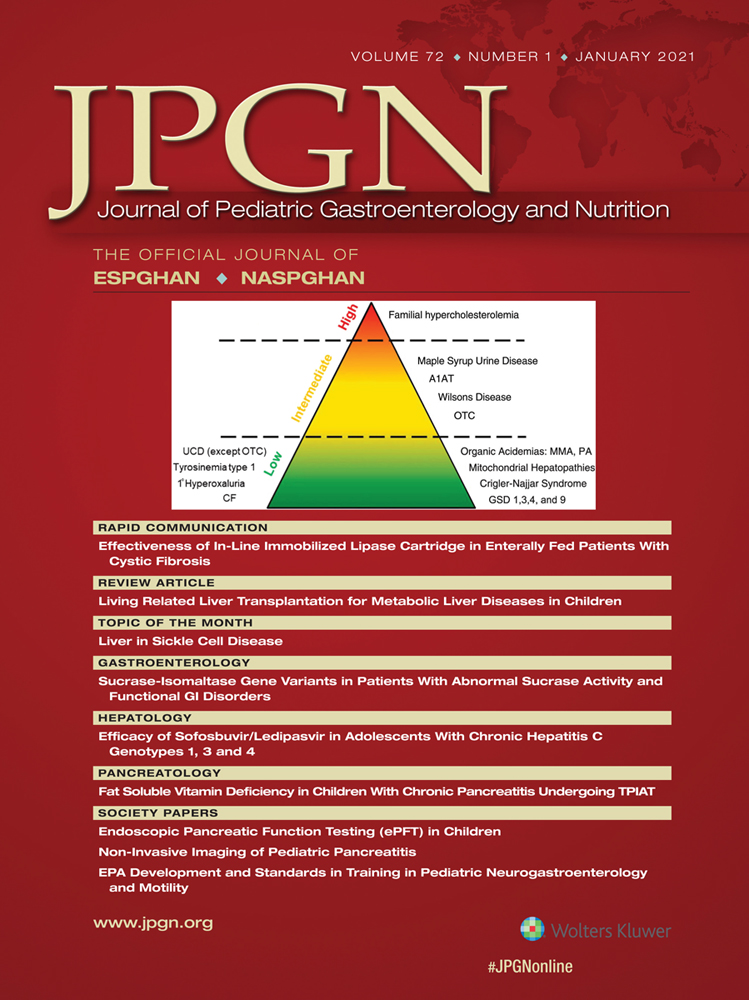Cisapride Use in Pediatric Patients With Intestinal Failure and Its Impact on Progression of Enteral Nutrition
The authors report no conflicts of interest.
ABSTRACT
Objective:
Gastrointestinal dysmotility is common in patients with pediatric intestinal failure (PIF), leading to delays in advancement of enteral nutrition (EN). Few studies have been published regarding the safety and efficacy of cisapride for improvement of enteral tolerance and ability to wean parenteral nutrition. Our objective was to describe a single center experience on the use of cisapride in patients with PIF.
Methods:
Retrospective chart review of patients was performed. Demographic, intestinal anatomy, and outcome data were collected. Percentage of EN before initiation of cisapride, progression of EN at 3 and 6 months, and ability to wean parenteral nutrition after initiation of cisapride were calculated.
Results:
Prokinetics were used in 61 of 106 patients (56.6%); 29 of 60 patients (48.3%) failed to progress EN on other prokinetics and started on cisapride. Before cisapride the progress of EN plateaued for a mean of 42.3 (standard deviation [SD] 60.2) days. The rate of feed progression was 0.14% (SD 0.19)/day pre-cisapride and 0.69%/day (SD 0.31) after cisapride initiation (P < 0.001). Percentage of EN improved significantly from baseline to 3 months postinitiation (23.9% vs 79.4%, respectively; P < 0.001). Electrocardiogram was performed on initiation of cisapride and after every dose change. Medication was discontinued in 2 of 29 (6.8%).
Conclusion:
This retrospective study suggests that cisapride may be beneficial in PIF patients who fail to progress EN on first line prokinetics. The most significant period of improvement occurs within 3 months of cisapride initiation. Cardiac side effects in our cohort were lower than previously reported; however, cardiac monitoring is still recommended.




